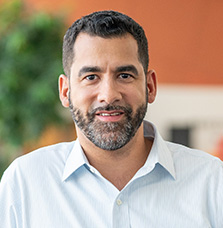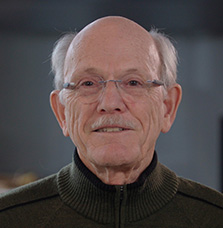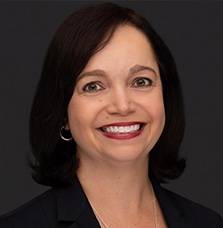It's easy to start your application.
McKelvey Engineering Awards
2025
The McKelvey Engineering Awards honor the professional accomplishments and service of distinguished alumni and friends.
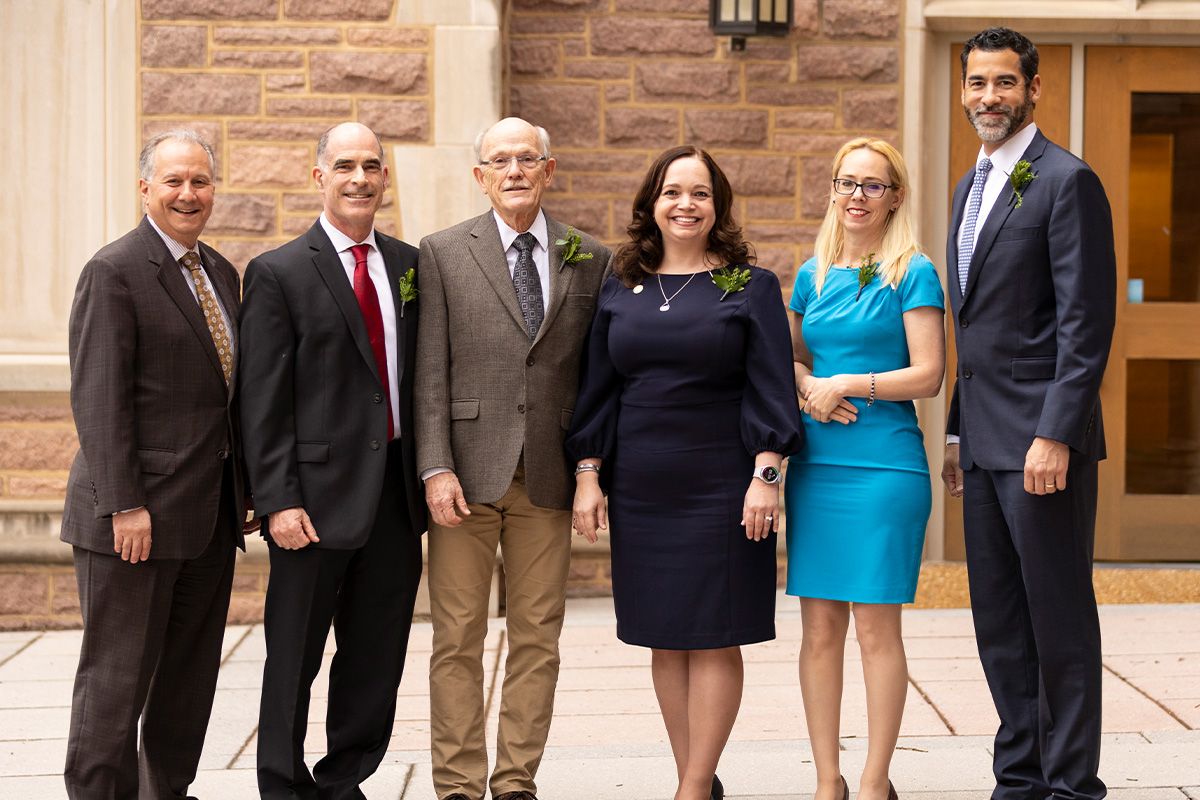
|
The Dean's Award |
Phil Bayly, the Lee Hunter Distinguished Professor, has been a valued member of the WashU faculty since 1993 and has served as the chair of the Department of Mechanical Engineering & Materials Science (MEMS) since 2008. Throughout his tenure, he has provided exceptional counsel and leadership, significantly contributing to the department’s growth and success.
An innovative researcher with an active lab, Phil focuses on impact, vibration, waves, oscillations, and instability in mechanical and biomedical systems. He uses magnetic resonance imaging to investigate the mechanics of brain injury and brain development. His research has been funded by the National Science Foundation, the Whitaker Foundation, the Office of Naval Research, and the National Institutes of Health.
Under Phil's leadership, the MEMS department has seen remarkable growth. Since his appointment as chair, undergraduate student enrollment has increased by 85%, master’s degree enrollment by 295%, and PhD student enrollment by 80%. Additionally, the number of women students has surged, with a 163% increase in women undergraduate students and a 214% increase in women PhD students. Faculty research awards have also seen a dramatic rise, increasing to $11.8 million in 2024, while research expenditures have grown to $9.2 million. The department's faculty has expanded to 19 tenured/tenure-track faculty and
12 non-tenure track teaching or research faculty.
Phil played a pivotal role in the design of the Henry A. and Elvira H. Jubel Hall and the Spartan Light Metal Products Makerspace. His thoughtful approach to the facility has allowed for collaboration among mechanical engineers, physicists, chemists, biologists, and chemical and biomedical engineers and a promotion of the convergence of mechanics, materials science, and nanotechnology.
In 1996, he received the prestigious Faculty Early Career Development award from the National Science Foundation. In 2004, he was named Engineering Professor of the Year, and he has twice received the McKelvey School’s “Big Fish” Award for graduate student mentoring. In recognition of his commitment to the intellectual and personal development of WashU students, Phil received the Founder’s Day Distinguished Faculty Award in 2014 and the Chancellor’s Award for Outstanding Contributions to Undergraduate Research in 2017. Phil and his wife, Rebecca, are William Greenleaf Eliot Society Fellow members.
Phil earned a bachelor of arts degree in engineering science from Dartmouth College,
a master of science degree in engineering from Brown University, and a PhD in mechanical
engineering from Duke University.
|
Alumni Achievement Award |
|
Dr. Rebecca Fushimi, a distinguished research scientist at Idaho National Laboratory (INL), focuses her research on advancing heterogeneous catalysts to enable agile chemical manufacturing. In her role, she develops and utilizes transient tools to understand how reaction networks and kinetics are regulated by the complex catalyst surface.
After completing her doctoral studies, she focused on the application and continued development of the temporal analysis of products (TAP) technology. Through private ventures and industrial collaborations, she facilitated the installation of advanced TAP reactor systems around the globe. To conduct public-interest scientific research, Rebecca established the Langmuir Research Institute, a 501(c)(3) organization dedicated to catalysis research and support of the global transient kinetics community.
As an expert in the TAP technique, Rebecca applies this dynamic method to investigate chemical manufacturing processes that produce fundamental building-block molecules such as ammonia, methanol, ethylene, and propylene. These molecules are critical to the production of countless consumer products that drive the economy: They help make everything from diapers to diesel. Her work also contributes to more efficient, cost-effective, and environmentally beneficial chemical production practices that utilize advanced energy sources.
At INL, Rebecca established the Catalysis and Transient Kinetics Laboratory, which has secured over $41 million in direct funding and works to create greater energy efficiency, cost-competitiveness, and resilience in chemical manufacturing technology. She was recognized for her contributions to the field with the Mid-Career Award from the Catalysis and Reaction Engineering Division of the American Institute of Chemical Engineers (AIChE) in 2022. She was appointed to the editorial advisory board of the journal ACS Engineering Au.
An advocate for STEM education, Rebecca has served as a mentor with Girls Who Code, the University of Idaho’s College of Engineering Women’s Mentor Program, and the Catalysis and Reaction Engineering program managed by AIChE.
Rebecca earned a bachelor of science degree in 2000, a master of science degree in 2003, and a doctorate of philosophy in 2006, all in chemical engineering from WashU. She holds a bachelor of science degree in chemistry and a bachelor of arts degree in French language and literature from Saint Louis University.
|
Matt Holton Alumni Achievement Award |
An expert in the payments and consulting space, Matt Holton currently serves as the senior vice president of technology and customer insights at Mastercard. He leads the data visualization team responsible for delivering actionable insights across the enterprise. In this capacity, Matt collaborates with numerous stakeholders to deliver and support key visualizations that encompass corporate KPIs, product roadmaps, and operational metrics.
Over his more than 25-year career at Mastercard, Matt has held several leadership positions, including in Operations & Technology Market Enablement, as the regional lead for North America, and in roles encompassing Digital Architecture, Portfolio Management, Solutions Definition, Authorization Development, and Technical Architecture. In these capacities, he has been influential in ensuring that Mastercard’s technologies comply with regulatory requirements while maintaining a strategic engagement with regional business and technology executives.
As the executive sponsor between Mastercard and WashU, Matt bridges the corporate and academic worlds to ensure collaborative efforts in recruitment, innovation, and thought leadership are successful and mutually beneficial.
Before his tenure at Mastercard, Matt honed his expertise at Accenture within their technology competency, where he supported a variety of industries including telecommunications, government, and electronic goods.
As an undergraduate, Matt was a John B. Ervin Scholar. He was a member of the Thurtene Junior Honorary, served as a resident advisor, and participated in the National Society of Black Engineers (NSBE), the Association of Black Students, and the men’s basketball team.
A dedicated alum, Matt is a current member of the McKelvey Engineering National Council, the Black Alumni Council, and the Electrical & Systems Engineering Department Advisory Board. He and his wife, Michele, also a WashU alum, have served on the Student Access Advisory Committee, demonstrating their commitment to scholarship support. He has been a featured speaker for the 50th Scholars in Engineering Celebration, the NSBE student group, and the Women & Engineering Leadership Summit.
Matt earned a bachelor of science degree in electrical engineering in 1995 and a master of business administration in 2009, both from WashU.
|
Randy Knight Alumni Achievement Award |
Randy Knight is professor emeritus of physics at California Polytechnic State University in San Luis Obispo, California. Renowned for his contributions to physics education, Randy is the author of three widely used university-level textbooks: Physics for Scientists and Engineers, College Physics, and University Physics for the Life Sciences. These texts have been instrumental in the education of more than 1.5 million science and engineering students. Randy’s books are notable for establishing a pedagogy based on experimental results from education research and cognitive psychology, focusing on how students actually learn science.
In addition to his work in physics, Randy has taught a variety of university-level courses on energy, environmental studies, meteorology, and oceanography. He was co-founder of the minor in environmental studies at Cal Poly. Before joining Cal Poly in 1989, Randy served as associate professor of physics and vice chair for Undergraduate Studies at Ohio State University. His outstanding contributions to higher education have been recognized by his induction as a fellow of both the American Association of Physics Teachers and the American Physical Society.
Randy has dedicated his time to environmental and wildlife conservation efforts. He has served on the Board of Trustees for the Land Conservancy of San Luis Obispo and Pacific Wildlife Care, an organization that rescues and rehabilitates injured wildlife. He is a long-standing member of the National Advisory Board of the Union of Concerned Scientists.
As an undergraduate, Randy was part of the third class of Langsdorf Engineering Fellows at WashU, played clarinet in the university band and orchestra, served on the Engineering Student Council, and was president of Tau Beta Pi, the engineering honor society. He and his wife, Sally, are William Greenleaf Eliot Society members, supporting the Langsdorf Scholarship Program, Women & Engineering, WashU Summer Engineering Fellowship, a speaker’s series in the WashU Environmental Studies Program, and the Fox Friday workshops in the Sam Fox School of Design and Visual Arts.
Randy earned a bachelor of science degree in physics from WashU in 1972 and a doctor of philosophy in physics from the University of California, Berkeley. He was a postdoctoral research fellow at the Harvard-Smithsonian Center for Astrophysics.
|
Rebecca Losli Alumni Achievement Award |
At the helm of Illinois American Water, Rebecca Losli leads the largest regulated water and wastewater utility in Illinois, which serves approximately 1.4 million people. In her executive role as president, Rebecca reinforces and strengthens relationships with customers, regulators, and local government entities; drives operational and financial results; and is the organization’s principal external contact. She leads more than 600 employees.
As a leader in the utilities sector, Rebecca provides clean, safe, and reliable water service to customers and communities; the reduction of PFAS, also known as forever chemicals, in drinking and wastewater; and the replacement of lead service lines.
Rebecca joined American Water in 2021 as the director of engineering for Missouri American Water. She was responsible for overseeing the overall performance of the Missouri American Water Engineering Department. Her responsibilities expanded in 2022 when she was promoted to vice president of Engineering and Business Development. In this position, she managed all engineering activities including capital planning, geographic information systems management, asset management, project delivery,
operational support, and environmental compliance support.
Prior to joining American Water, Rebecca served as the Manager of Program Planning for the Metropolitan St. Louis Sewer District. She also founded and served as President of Losli Engineering and was the water regional global practice leader for Burns & McDonnell Engineering Company.
Rebecca is also actively involved in numerous boards and councils. She is the chair of the Illinois Utility Business Diversity Council and serves on the Board of Directors for the St. Louis Urban League and the Engineers’ Club of St. Louis. She and her husband, Greg, also a WashU alum, are members of the William Greenleaf Eliot Society and serve on the McKelvey Engineering Alumni Advisory Board. In 2023, the Energy, Environmental & Chemical Engineering department honored her contributions to the field of environmental engineering with the Distinguished Alumni Award.
Rebecca earned a bachelor of science degree in civil engineering in 2002, a master of science degree in environmental engineering in 2005, and a master’s of business administration in 2010, all from WashU. She also holds a bachelor’s degree in physics and mathematics from Samford University.

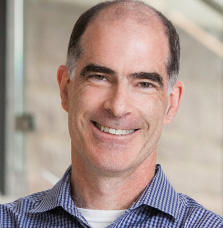 Phil Bayly
Phil Bayly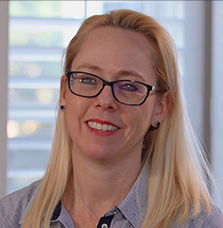 Rebecca Fushimi
Rebecca Fushimi